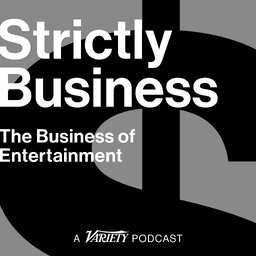How 'Exploding Kittens' Founders Turned Their Best-Selling Card Game Into a Netflix TV Series and Mobile Game
"Exploding Kittens" co-creators Matthew Inman and Elan Lee break down how they continue to expand their popular tabletop gaming brand while expanding primary business into TV series and mobile gaming with Netflix.
 Variety's Strictly Business
Variety's Strictly Business


